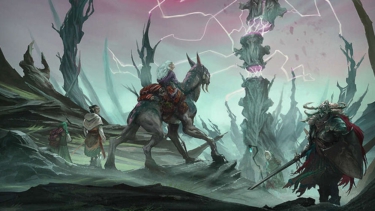
The region of the brain in question, the hippocampus, was found to shrink when people played action shooters and grew when they played Mario games. The hippocampus, according to brainmadesimple.com, is responsible for processing long-term memory and emotional responses. Which would explain many of our little brothers’ apatheti responses when we talk to them during a match of the run-and-gun game. Not only does the hippocampus help with long-term memory, but it also assists us with the location of people or places. If we didn’t have this part of our brain, we wouldn’t be able to find our way back to our houses when we left.
And it’s in the way Call of Duty is designed that gives us this brain-shrinking side effect. In CoD there are many visual cues that help players make their way around the map. This then leads players to rely solely on these markers to navigate around terrain as they are rewarded for using this method of traversal. Ultimately, this leads to a lack of usage in the hippocampus and a slight size reduction. However, if we look at Mario, we see that the player has to figure out how to get to the end of each level, training the hippocampus and thus making its gray matter increase. This is especially true for later iterations of the series that has players controlling the turtle-toppling plumber in a 3-D environment such as Super Mario 64 and the new title Super Mario Odyssey that’s to be released Oct. 27 on the Switch. The study fails to explore different types of games or even the effects of viewing games as watching eSports has become popular since the advent of sites like Twitch where people can tune into their favorite video game broadcaster. eSports blog teams are even a focal point of betting as people pick their favorite teams and begin to follow them the same way a baseball or basketball fan would, but does this influence the brain in the same way that physically controlling a character might?
Regardless, these hippocampus findings are similar to countless other studies that aim to find a correlation with playing video games and brain activity. A different study conducted by Hannover Medical School and reported on by App Trigger suggests a dissenting opinion to the “desensitizing theory” that states playing violent video games will elicit less of an emotional response to violent imagery. Another bit of research from The Journal of Neuroscience states that playing “brain-training” games does not boost cognitive function.
So it seems that scientists’ fascination with finding out if playing games has positive or negative effects on humans will continue. Maybe next time they should do a study on 10,000 people in different age groups, different parts of the world and different sexes and have them play every genre of game. But, then again, that’s probably why we’re not scientists. Until then, we’ll be here reporting on their findings.
- What Are Social Casinos? - Feb 22, 2024
- From Slots to Screens: Navigating the Diversity of Online Casino Entertainment - Feb 14, 2024
- The 5 Best Gambling Video Games - Feb 12, 2024













